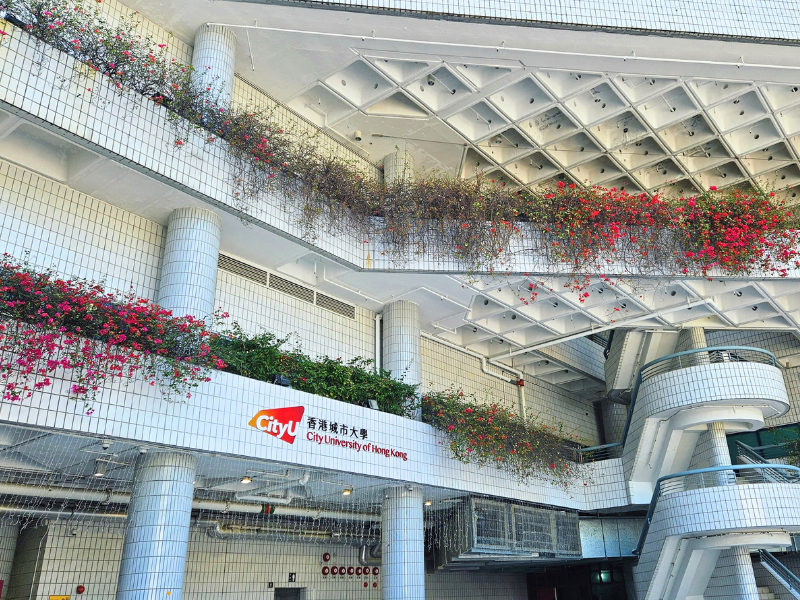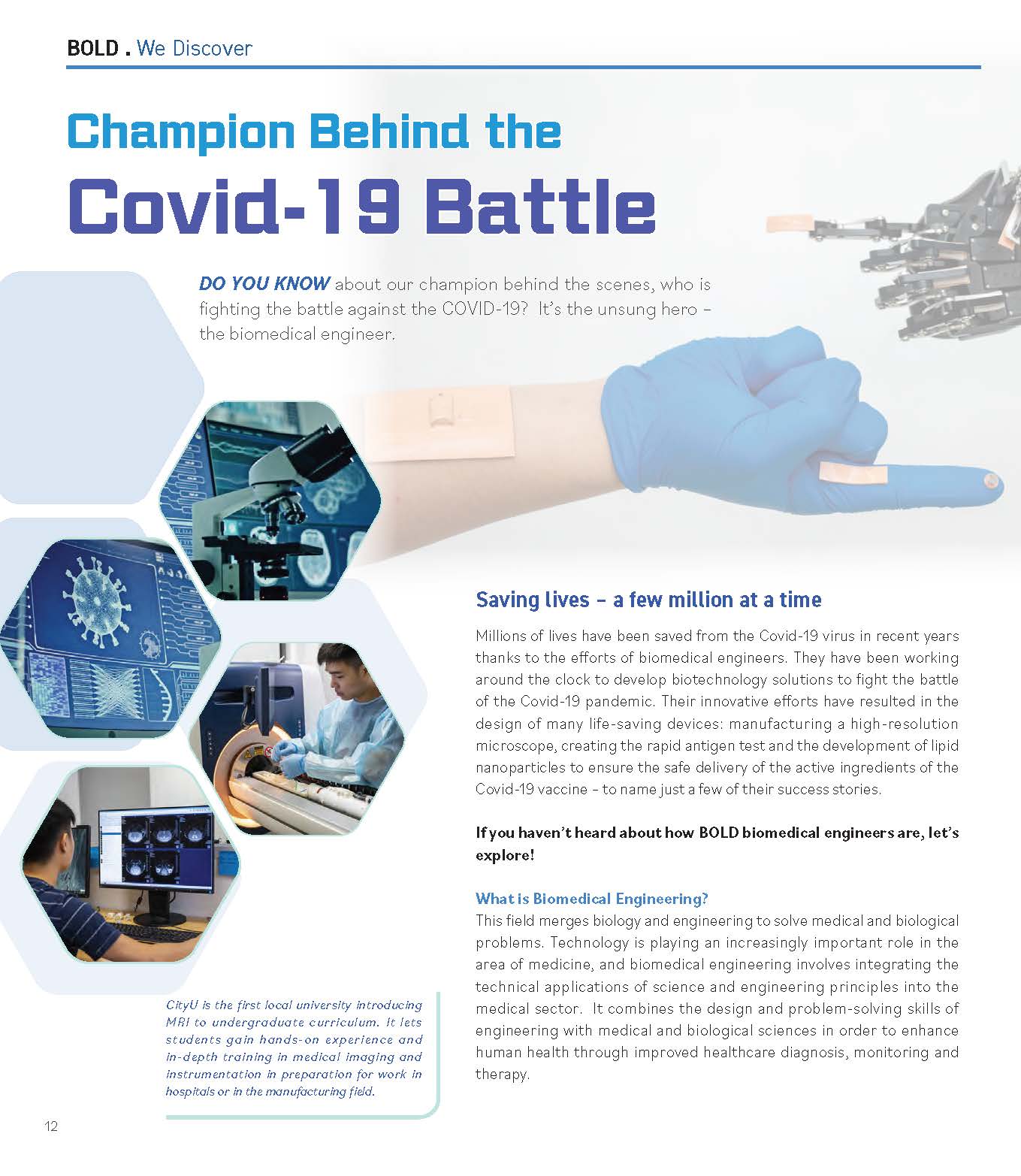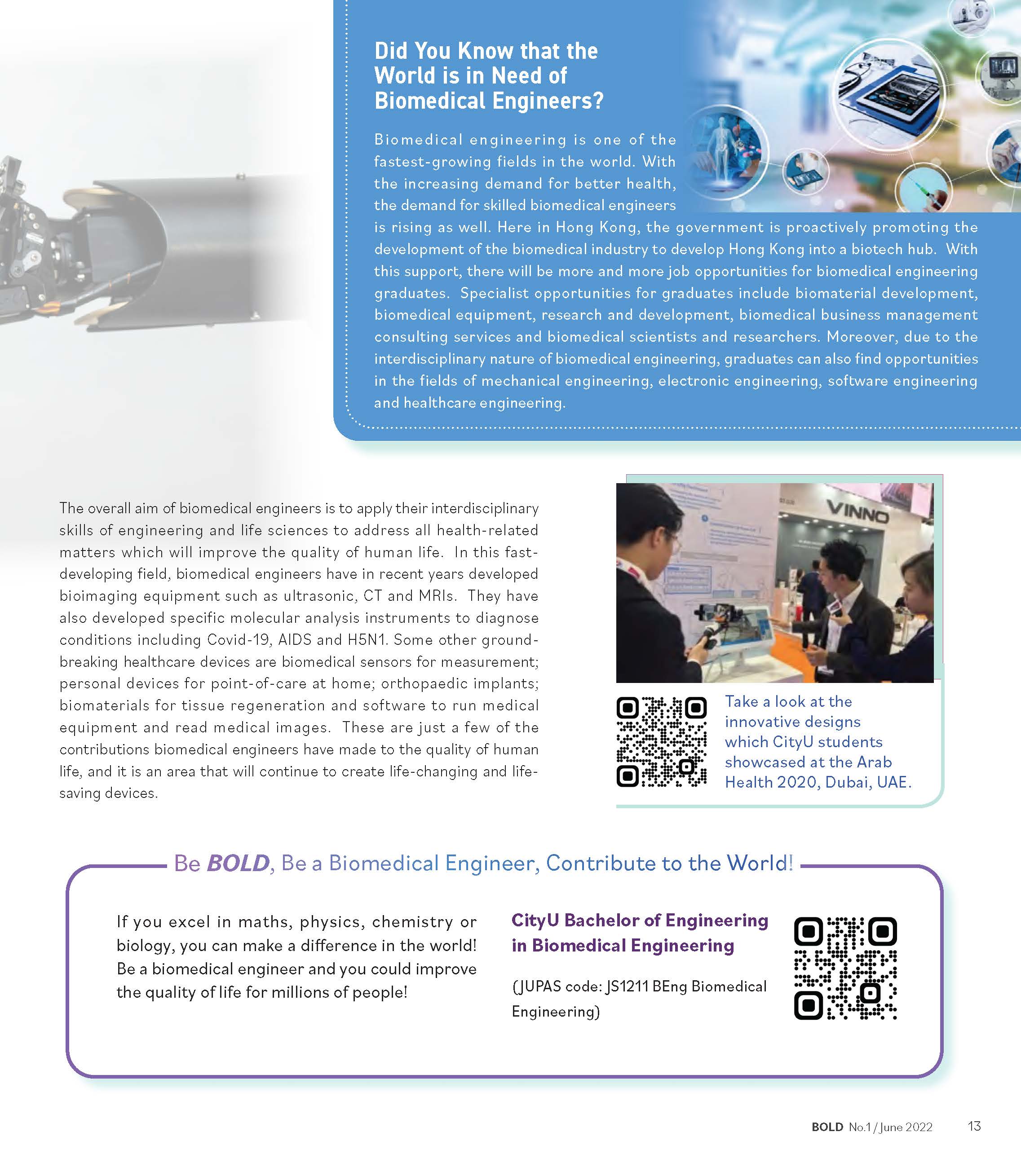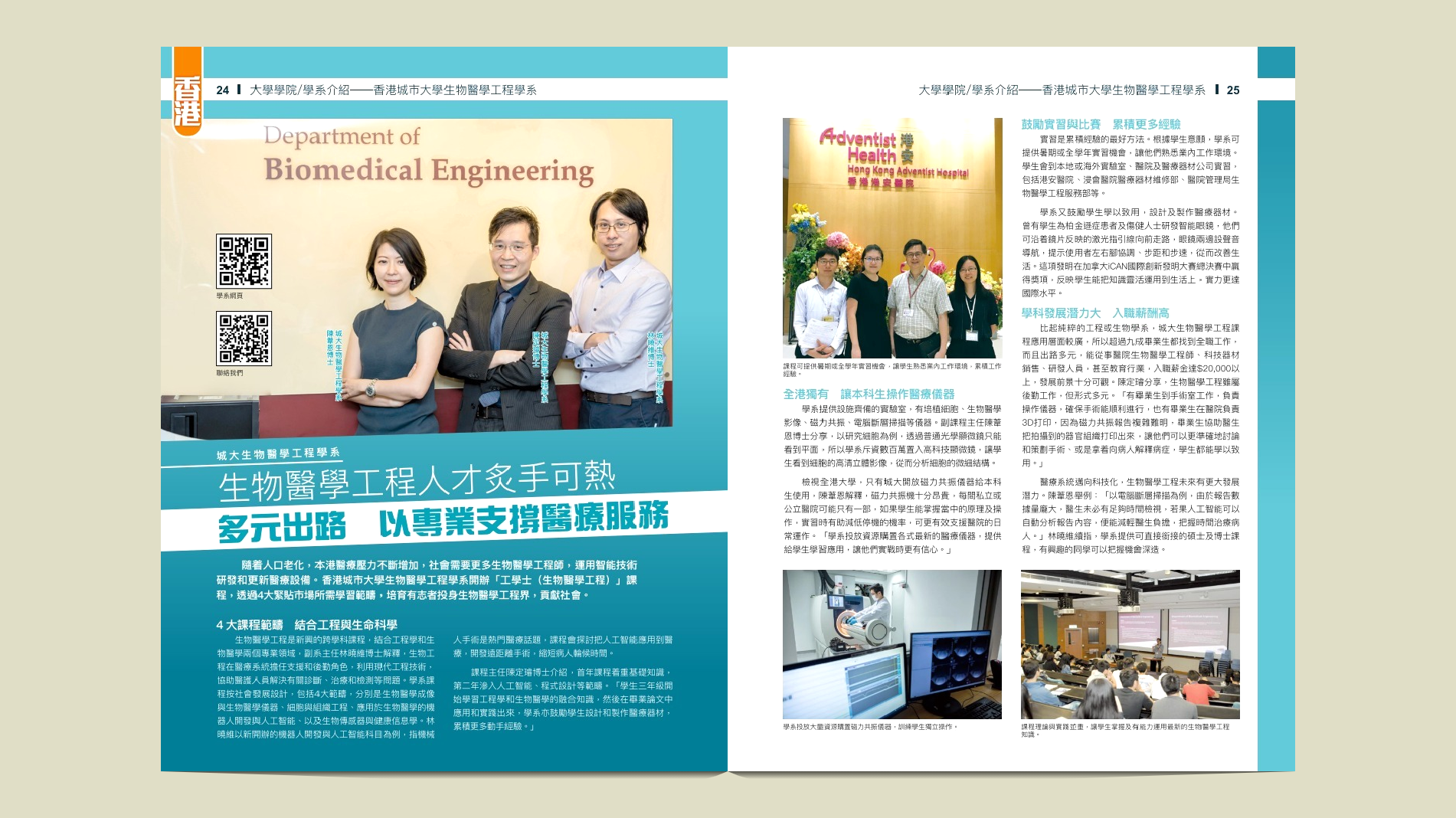Pathway for Research, Innovation, and Multinational Engineering (PRIME) (any major in College of Engineering + Overseas Experience / Interdisciplinary / Entrepreneurial Training)
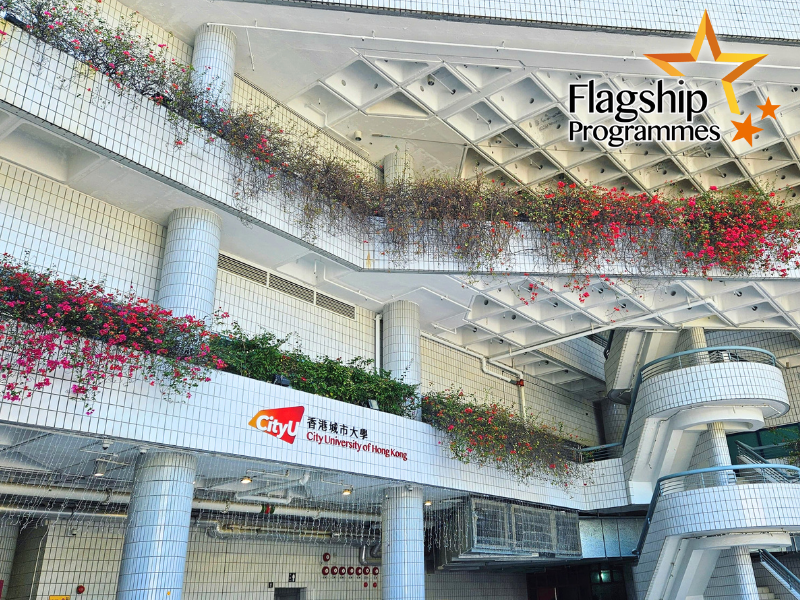
1217 (JS1217)
Local Places:
15 (For First-Year Entry; Tentative)*
Non-Local Places
(For Overall Direct Applications):
Around 400
* for JUPAS and non-JUPAS admissions
The Pathway for Research, Innovation, and Multinational Engineering (PRIME) programme is a flagship programme of the College of Engineering designed to provide exceptional students with a comprehensive education in engineering and opportunities to gain valuable experience through research internships and work placements in top universities and companies worldwide. This programme is intended to equip students with the skills and knowledge needed to excel in the field of engineering and to prepare them for successful careers in the global engineering industry. The PRIME programme is open to talented and motivated students with a passion for engineering and a commitment to excellence.
Key features
Students accepted into the programme receive a range of benefits, including:
- Free Choice of Major: Students admitted to the PRIME programme are free to choose any major in the College of Engineering upon accepting the offer. They will be enrolled in one of the departments before starting their first year of study. For departments offering a single major, students will be enrolled in the major in the first year. In the case of departments offering more than one major, students will be admitted to the department in their first year and enrolled in their pre-selected major in subsequent years.
- One-on-One Mentorship: Each student will be paired with a faculty member who will provide personalized guidance and support throughout the programme. The faculty mentor will help the student identify their academic and professional goals, develop a plan to achieve them, and provide feedback and guidance along the way.
Overseas Experience in Year 3 or Year 4
a) Research Internship: Selected students will have the opportunity to work with leading researchers in their field at one of the top overseas universities. This will provide students with hands-on experience in cutting-edge research and will help them develop essential skills in data analysis, experimental design, and scientific communication.
b) Global Work Placement: Selected students may also have the opportunity to be placed in an international company in North America (US, Canada), Europe (France, Germany, Switzerland, etc.), and other developed countries (Singapore, South Korea, Japan, etc.) to gain work experience and apply their engineering skills in a real-world setting. This will enable students to build their professional network, develop communication skills, and gain invaluable industry experience.
- Interdisciplinary Final-year Project: With the collaborative culture that the College fosters, the experienced faculty with expertise in a diverse range of research areas, and the state-of-the-art research facilities, students will be aided in conducting interdisciplinary research in their final-year projects. An interdisciplinary final-year project will offer an excellent opportunity for students to explore and integrate knowledge from multiple fields, which will be a valuable experience for their future careers.
- Guaranteed admission to CityUHK PhD programme#, providing a clear pathway for students interested in furthering their academic and research careers.
#Upon meeting the entrance requirements for PhD programme when the student graduates from PRIME.
Other features
With the mission to foster the career development of students and promote impactful innovations, students of the College of Engineering will also benefit from the following optional schemes.
- Undergraduate plus Master's Degree Programmes: Students in an “Undergraduate plus Master's Degree Programme” will receive a conditional offer for a Master's degree programme when they join CityUHK as undergraduate students. They can benefit from higher-level courses, such as those with research elements and normally taught at the postgraduate level, during their undergraduate study. On completion of their study at CityUHK, students will be awarded two degrees (Bachelor's degree + Master's degree).
- Entrepreneurial Training: The College offers a Minor in Engineering Entrepreneurship, which aims to provide entrepreneurial training to help students develop the skills and knowledge needed to start and operate their engineering businesses. It also helps students broaden their multi-disciplinary perspectives, integrating management, marketing, finance, and engineering.
- Global Challenges: CityUHK X Sino Grand Challenges Scholars Program (CityUHK X Sino GCSP) is a combined curricular and extracurricular element to prepare students to be the future engineers and scientists that address and solve the global challenges facing the world in this century. CityUHK X Sino GCSP would give students a sense of purpose and enable them to positively impact the world through their engineering work.
- Cross-Cultural Competence: Through student exchange programmes, study tours and the Cultural & Language Immersion Scheme (CALIS), students are provided with opportunities to develop cross-cultural competence through activities such as language training, cultural immersion experiences, or international service projects. This would help students to become global citizens and to develop the skills needed to work effectively in diverse and multicultural environments.
Local JUPAS students admitted to the Flagship Programmes with outstanding HKDSE examination results shall be automatically considered for the Flagship Scholarships. The Flagship Scholarships include:
- Tuition and hall fees incurred at CityUHK and are tenable for the normal duration of the programmes concerned
- Full Scholarship: 100% tuition and hall fees (double room occupancy)
- Half Scholarship: 50% tuition and hall fees (double room occupancy)
- Guaranteed berth in the Halls of Residence
- A one-off special sponsorship of a maximum amount of HK$500,000 for an overseas exchange of up to one year at a top-ranked university
Please click here for details.
Students admitted to the PRIME programme are free to choose their majors upon accepting the offer. They will be enrolled in one of the departments before starting their first year of study. For departments offering a single major, students will be enrolled in the major in the first year. In the case of departments offering more than one major, students will be admitted to the department in their first year and enrolled in their pre-selected major in subsequent years.
JUPAS Entrance Requirements
| JS1217 Pathway for Research, Innovation, and Multinational Engineering (PRIME) (any major in College of Engineering + Overseas Experience / Interdisciplinary / Entrepreneurial Training) | |
| HKDSE Subject | Minimum Level Required |
| English Language | Level 3 |
| Chinese Language | Level 3 |
| Mathematics | Level 3 |
| Citizenship and Social Development | Attained |
| Elective Subjects | Level 3 in two elective subjects from: - Biology - Chemistry - Design and Applied Technology - Information and Communication Technology - M1/M2 - Physics |
Notes:
- Besides Category A elective subjects, Mathematics extended modules (M1/M2) can also be used to meet the elective requirement. If students take both M1 and M2, they are counted as one subject only.
- Applied Learning subjects are not counted as elective subjects.
- For details of the alternative Chinese Language qualifications acceptable by the University for Non-Chinese Speaking (NCS) students, please click here.
Entrance Requirements for Direct/ Non-JUPAS Applicants
To be considered for admission, you must satisfy the General Entrance Requirements.
Recognising the importance of nurturing students with a global perspective, the College encourages students to undertake academic exchange, believing that these experiences can enhance students' personal and career development. Currently, the College has an extensive network of exchange partners in Austria, Belgium, Canada, Chile, Columbia, Czech Republic, Denmark, Finland, France, Germany, India, Italy, Japan, Korea, Macau, mainland China, Spain, Sweden, Taiwan, the Netherlands, the UK, the US and Turkey. Please visit https://www.cityu.edu.hk/ceng/student-life/student-exchange for more information on student exchange.
The College operates the Co-operative Education Centre with a mission is to work with industry, local and overseas, to provide co-operative education for students. The Centre aims to nurture a new generation of engineering professionals and industrial leaders with a global outlook who are capable of meeting the challenges in this fast-changing world. The Centre currently offers three major internship programmes for students:
Co-operative Education Scheme (CES)
All undergraduate engineering programmes* of the College of Engineering are accredited by the Hong Kong Institution of Engineers (HKIE).
* Aerospace Engineering and Microelectronics Engineering will seek accreditation from the HKIE in late 2025, while Innovation and Enterprise Engineering will seek accreditation in late 2028.
This is one of the CityUHK’s Flagship Programmes, which equip students with essential knowledge and skills, cultivate their global leadership abilities, and connect them with leading professionals. The Flagship Scholarships, which cover tuition and hall fees, a guaranteed berth, and a one-off exchange sponsorship of up to HK$500,000, will be awarded to local JUPAS talents who meet the criteria.
+852 3442 4133
+852 3442 0293
When necessary
- Individual interview
- English
When necessary

